
Office of Research Services
Annual Report 2019/20
Research is not a solitary endeavour. Knowledge is a shared pursuit and Laurier researchers cross disciplines, sectors, borders and cultures to uncover it.
This year we are highlighting the purposeful partnerships that Laurier faculty and students have cultivated with governments, Indigenous peoples, industry, and our local and global communities.
![]()
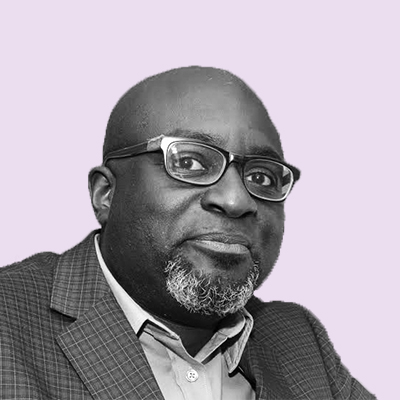
Laurier reaffirmed its commitment to equity, diversity and inclusion (EDI) in research this year with assistance from the Government of Canada’s Dimensions: Equity, Diversity and Inclusion Canada program. It was one of the first Canadian postsecondary institutions to endorse the Dimensions Charter, a commitment to taking concrete steps to adopting EDI principles throughout the university.
As part of the Dimensions national strategy, Laurier received an EDI Institutional Capacity-Building Grant, which provides funds for institutions to work toward identifying and eliminating systemic barriers impeding the recruitment, retention and advancement of underrepresented groups within academia. Former federal Minister of Science and Sport Kirsty Duncan visited Laurier to announce the award, which will be primarily used to fund new EDI-related faculty and staff positions.
The grant supported the appointment of Barrington Walker (History) as the associate vice-president of EDI. He is leading the creation of a university-wide EDI strategy and providing expertise, guidance, mentorship and support to faculty and staff working toward EDI-related goals.
Though the two years of federal funding will help give the project momentum, Laurier is committed to investing in EDI on an ongoing basis.
Rural municipalities are highly vulnerable to extreme weather events exacerbated by climate change. With large areas and sparse populations, they have fewer resources to respond to events such as forest fires, floods and storms – or even to plan their responses to future disasters.
Brenda Murphy (Social and Environmental Justice) completed a three-year study funded by the Ontario Ministry of Agriculture, Food and Rural Affairs focused on inter-community service sharing as a way of enhancing rural climate change preparedness.
“We have developed a series of best practices to help communities that may be thinking of sharing services get started,” says Murphy.
The need to innovate is urgent. Many rural communities have already suffered millions of dollars in infrastructure damage due to floods, storms, forest fires and other extreme weather events. Murphy and her research team recommend that higher-level governments should provide more resources to help rural municipalities adapt.
“Enhanced, efficient service co-operation can contribute to a sustainable and prepared infrastructure system, while also protecting the environmental capital upon which rural economies frequently depend,” says Murphy.

The Waterloo City Hall property features a stretch of brick patio space on Regina Street South and stone seating areas along the grass banks of Laurel Creek. Residents and visitors are not using the spaces as much as the city had envisioned, so it tasked undergraduate students in Laurier’s CityStudio course to develop a low-cost, long-term solution to increase community engagement with its outdoor public spaces.
Kayli Bui and Eliza Moratz, both Global Studies majors, conducted research to investigate the community’s wants and needs related to the City Hall grounds. Their findings informed “The Regina Street South Gateway Project,” a report in which Bui and Moratz suggest that the city define City Hall’s grounds as an outdoor oasis.
Recommendations include illuminating the seating areas along Laurel Creek at night, planting more greenery and flowers, and adding informational signage.
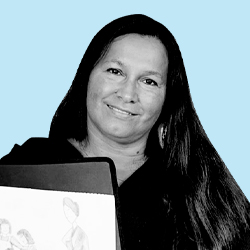
Laurier’s Centre for Indigegogy offers a Decolonizing Education Certificate program to help educators understand colonization and its impacts and to integrate those perspectives into their teaching. Kathy Absolon-King (Social Work), director of the centre, is an instructor in the program.
“Decolonization is a process of unpacking and unlearning, and taking a second look at the values, beliefs and ethics with which we teach,” says Absolon-King.
Absolon-King discovered a gap in existing academic literature about this process, making it difficult to establish best practices for decolonization education. With funding from SSHRC, she is seeking to remedy that by collaborating with scholars from the University of Guelph, Memorial University of Newfoundland, Ryerson University and York University to collect video narratives of participants who have completed the Decolonizing Education Certificate program.
“We are documenting a journey that not many people have had the courage to go on,” says Absolon-King. “We are going to take a closer look at where the turning points are, when the ‘a-ha’ moments occur and what causes those transformative moments. Our learnings will inform future modules and deepen our training.”

Together with the Cherry Park Neighbourhood Association, Miguel Sioui (Geography and Environmental Studies) and Gary Warrick (Archaeology and Heritage Studies) received a SSHRC Partnership Engage Grant to turn Raddatz Park in downtown Kitchener into a space to honour the city’s Indigenous roots.
“If you take a visual tour of the city, you would think that its history began when the first Germans moved to the area,” says Sioui. “The Grand River watershed was the original homeland of the Attawandaron. We want to create a space where we teach Indigenous history and values, and remind ourselves of their significant role as stewards of the land.”
At the park, Indigenous teachings will be shared through traditional garden areas, public art, monuments, interactive activities and play structures.
One of the inaugural professors at Laurier’s Brantford campus, Warrick has spent his career working with Six Nations of the Grand River.
“By sharing with me their value of the land, I began to look at archaeology in a very different way than what I had been taught,” says Warrick, who will compile the known archaeological site data from the Kitchener-Waterloo area and connect Sioui with local Indigenous knowledge-holders.
“We want to make sure that their vision is reflected in how we use the space,” says Sioui.
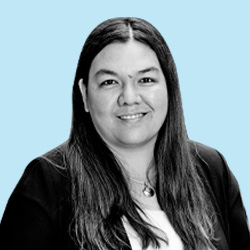
Melody Morton Ninomiya (Health Sciences) received Laurier’s first New Frontiers in Research Fund grant for a study that will demonstrate how including Indigenous knowledge in research benefits Indigenous Peoples.
“Having worked with a number of First Nations communities, I have heard several knowledge keepers and Elders express profound resentment over the extractive way past research was conducted,” says Morton Ninomiya. “At the same time, Elders are worried that their knowledge isn’t being preserved and passed on to the next generation.”
Morton Ninomiya is working with her co-principal investigator, Lisa Bourque Bearskin, associate professor at Thompson Rivers University in Kamloops, B.C., to reveal the ways, contexts and outcomes of including Indigenous knowledge in research across disciplines and nations.
She and Bourque Bearskin have assembled a network of 15 peers across Canada, most of whom are Indigenous, to contribute their experiences and perspectives to the study.
“We have a big team because we want to include a mixture of career stages, geographies, gender identities, and Indigenous and non-Indigenous scholars, as well as a variety of academic fields,” says Morton Ninomiya. “Research splits us into different siloes, but there is a lot to learn across disciplines.”
Xu (Sunny) Wang (Mathematics) and her Laurier research team have been collaborating with Lovell Corporation, a Kitchener-based global youth consultancy and innovation firm, to develop a new impact measurement framework for its mobile app, MyEffect. All actions on the app will be mapped to the United Nations’ Sustainable Development Goals (SDGs), an ambitious set of 17 targets related to issues including poverty, climate change and peace.
“We want to empower young people to get involved in their communities, but a clear pathway and a framework to bring individuals together is needed,” says Kelly Lovell, founder of Lovell Corporation, who is currently serving on several UN advisory boards who are working to achieve the SDGs by 2030. “How do we localize the SDGs to make them approachable and measure if we’re moving forward?”
Lovell realized that in order to engage young people and measure the tangible impact of their efforts, they would need to turn the SDGs’ largely qualitative indicators into quantitative measurements. She approached Wang to create an impact measurement framework for MyEffect so users can earn points for their positive contributions to society.
Wang assembled a team of master’s students to start collecting data and designing a model for the app. Lovell’s team shared resources and software with the students and she drew on her connections to help them find elusive information. Once Wang’s team developed a model, they created detailed simulations to mimic consumer behaviour and made sure the app could match users with relevant volunteer opportunities.
Lovell was extremely impressed with the students and the model they developed. She plans to continue her partnership with Wang through the next stage of development, which involves validating the model with real customer data.
“I love academic-industry partnerships,” says Lovell. “Working with Laurier gives us access to new expertise and high-quality personnel, and it allows us to invest in the next generation of talent.”
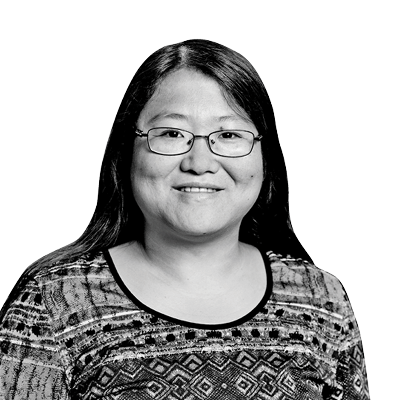
Warm temperatures are known to negatively impact plant immunity, making climate change a serious threat to global agriculture and food security. Danve Castroverde (Biology) was awarded an NSERC Discovery Grant, along with a Discovery Launch Supplement, to decipher at the molecular level what makes plants less resistant to disease in warmer climates.
“My goal is to identify which molecular mechanisms and genetic components are being disturbed, activated or made vulnerable at elevated temperatures, with a particular focus on plant defence pathways,” says Castroverde.
One of Castroverde’s collaborators is Platform Genetics, a company that uses reverse genetics for trait development and crop improvement. Platform’s technology will enable Castroverde to isolate specific genes in tomatoes that are believed to impact immunity and analyze tomato plants with mutations in those genes. He is hopeful his lab’s findings can apply broadly to other plant species.
“Once we have that fundamental understanding, we should be able to improve crop disease resistance in Canada and worldwide,” says Castroverde.

As someone who worked in health care for many years, Josephine McMurray (Business Technology Management) knows the importance of medical technology research, both to solve health-care delivery problems and to show graduate students how their work can be translated to the marketplace.
McMurray was awarded two new research grants this year by AGE-WELL, a Canadian network focused on new technologies for healthy aging. The first grant is for a study examining how employers can be supported to develop technologies and accessible workspaces for employees who have been diagnosed with mild cognitive impairment or early onset dementia, to help those employees stay active in the workplace as long as possible.
“Depending on their diagnosis and their skillset, these workers can remain productive for years,” says McMurray, who has assembled a pan-Canadian network for the study of partners and stakeholders from industry, government, not-for-profit organizations and the community.
McMurray’s second study explores the implementation of geolocation technology in long-term care homes for people with dementia, both to track their location for their physical safety and to collect clinical data.
Jiashu Zhao (Physics and Computer Science) was awarded an NSERC Discovery Grant and Discovery Launch Supplement for her project “Adaptive understanding of big data for smart systems,” which will propose novel approaches for improving user experience on smart information systems. Zhao uses the example of online shopping to illustrate how her findings will be useful.
“Products are tagged with descriptive keywords and the system matches users with certain products based on their searches,” says Zhao. “But different people use different search terms for the same product, so a system must be adaptive in real time.”
Zhao plans to use strategies like reinforcement learning – tracking user behaviour to provide feedback to the system – to help optimize outputs. She continues to collaborate with former colleagues in the e-commerce, search engine and banking sectors in order to test her results.
“Collaborating with industry partners on big data studies is very useful because they have access to actual users and data,” says Zhao. “We can plug in our new models and see how they work in real-life applications.”
The OutLook Study, the first comprehensive study to analyze the needs of the LGBTQ2S+ community in Waterloo Region and one of the largest such studies in Canada, continues to inspire close collaboration between Laurier researchers and community organizations.
In 2019, a research team led by Charlie Davis, a Community Psychology PhD student at Laurier, published a fact sheet based on results from the OutLook Study titled “Experiences of trans people in Waterloo Region.” The document touches on issues including victimization, sense of community belonging, education, income and employment. It also includes a list of recommendations to make health-care services more trans-inclusive and accessible.
The fact sheet was created in collaboration with members of the OutLook Study, including Laurier professors Todd Coleman, Robb Travers, Ciann Wilson, Simon Coulombe and Michael Woodford, the Region of Waterloo Public Health and Emergency Services, and trans community members from the Rainbow Community Council, OK2BME, the AIDS Committee of Cambridge, Kitchener, Waterloo and Area, and Laurier.
“There’s a belief that if more trans people are coming out and there’s more media attention, there’s an increase in support as well, but that’s not always the case,” says Davis.
Most of those surveyed said they had experienced transphobia, and also reported feeling unsafe in public spaces in Waterloo Region including bars, public washrooms, gyms, malls, grocery stores and places of worship.
Access to health care and experiences in health-care settings were emphasized as problematic in the fact sheet. Davis, who assisted with the OutLook Study as a community liaison before returning to university for his PhD, was part of the trans advisory group that created a list of recommendations for health-care providers in the region.
“For a lot of trans people, the report is really validating, especially for those who try to do advocacy in the region,” says Davis. “It’s discouraging, too, but I think that’s just a sign that there’s a lot of work that still needs to be done.”
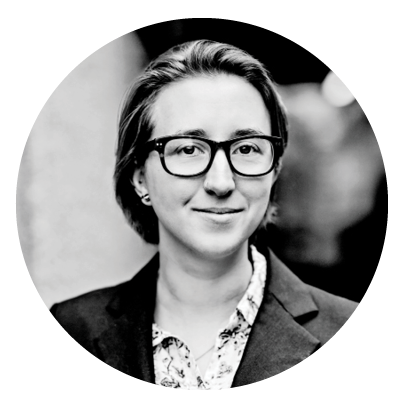
James Popham (Criminology) received a SSHRC Partnership Engage Grant to work with the City of Brantford on an evaluation of the Brantford Downtown Outreach Team (BDOT), a pilot program focused on connecting people in the downtown core who may be experiencing mental health, substance use or housing challenges with the support services they need.
“We are going to be listening to voices of people connected with the program – the administration, outreach team members and some of the clients they’ve worked with, as well as local organizations such as the Downtown Brantford Business Improvement Area,” says Popham.
The evaluation will use anonymized data to measure changes to indicators such as calls for policing and people using addiction recovery programs. Popham’s team will also observe the BDOT in action and conduct interviews and focus groups.
“Programs of this nature are a non-aggressive way of connecting people with different services they may not be aware of and developing appropriate community-based responses to mental health and substance use crises,” says Popham.
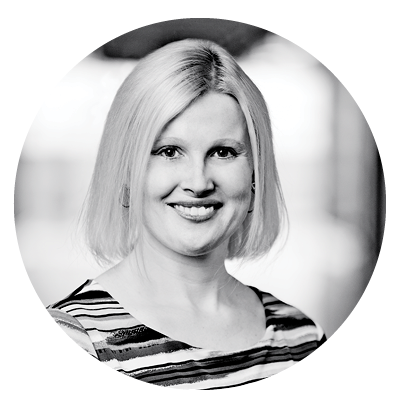
Much attention has been paid to the poor performance of Ontario students on standardized math tests. Research has identified a close link between teachers’ specialized knowledge of mathematics and student achievement. Jennifer Holm (Education) believes that when training teachers, there must be a focus on learning deeper, more flexible knowledge of mathematics in order to teach lessons effectively to all students.
“Teachers need to truly understand the math they are teaching so that they can help all different types of learners learn,” says Holm.
With the support of a SSHRC Insight Development Grant, Holm is working with Laurier graduate and Bachelor of Education students to develop online modules for teaching math. They are creating videos and testing them with teacher candidates in the B.Ed program.
“Each video has three or four ways to tackle every problem using different models and reason,” says Holm. Participant feedback will be used to refine the content. Holm hopes this approach will have a positive impact on Ontario teachers and, ultimately, their students.
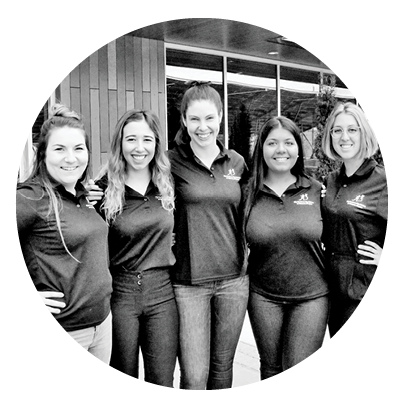
Big Brothers Big Sisters of Waterloo Region wanted a high-quality report to demonstrate the impact of their one-on-one mentoring program but had neither the capacity to complete it in-house nor the money for consultants. Five Laurier students – Sonya Bisol, Riann Boodram, Aristaea Murrell, Dana Orton and Megan Strazds-Esenbergs – stepped up to help the local charity.
As part of Applied Community Research, a fourth-year community psychology course run through the Laurier Centre for Community Research, Learning and Action, the students interviewed Big Brothers Big Sisters volunteer mentors, current and former mentees, and parents of children who received support from the agency.
All five students say they learned a lot about the research process and about working with a community partner. Mallory Boyer, resource development manager for Big Brothers Big Sisters, was impressed with the students’ enthusiasm and professionalism.
“The students did a great job of highlighting our work,” says Boyer. “It will be a great tool to use when we’re looking at working with new funding partners or if we’re reporting to existing funders.”
In a world where 37 per cent of greenhouse gas emissions are caused by global food systems and more than 820 million people are food insecure, food is at the root of many complex global challenges.
“We have enough food to feed everyone,” says Alison Blay-Palmer (Geography and Environmental Studies), founding director of the Laurier Centre for Sustainable Food Systems (LCSFS). “What we need to work on is how to get food to the people who need it while also protecting biodiversity and dealing with climate change.”
As the issues she studies become increasingly urgent, Blay-Palmer’s work received a major international endorsement this year: she was named United Nations Educational, Scientific and Cultural Organization (UNESCO) Chair on Food, Biodiversity and Sustainability Studies.
Led in Canada by the Canadian Commission for UNESCO, the prestigious UNESCO Chairs program promotes international inter-university cooperation in key priority areas for UNESCO. The program involves more than 781 institutions in 116 countries. Blay-Palmer is only the fourth Ontario scholar to be named as a chair in the program.
With the enhanced profile of the UNESCO Chair, Blay-Palmer will continue to lead research teams and establish partnerships that are international in scope. She and her colleagues are currently involved in food-systems research around the world, from Berlin to Kenya to the Northwest Territories.
Much of Blay-Palmer’s work as a UNESCO Chair will be focused on creating solutions with broad applications and sharing them widely through innovative means, such as podcasting and online community portals.
“If you talk to people in the Northwest Territories or you talk to people in Kenya, they are all grappling with the impacts of climate change,” says Blay-Palmer. “What we do is try to provide a suite of tools and resources that communities can choose from to help them develop more place-based and sustainable food systems.”
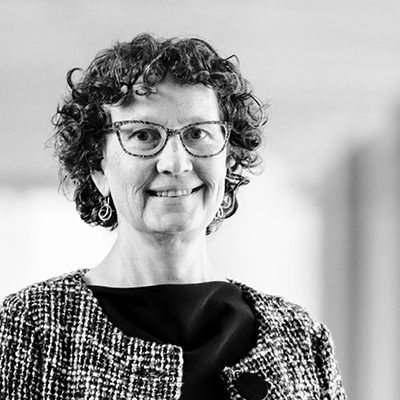
While completing a book on men’s mental illness in the 19th century, Amy Milne-Smith (History) came across medical files of British army officers who had been institutionalized at private asylums.
“I wondered, how did they view trauma and the effects of war and mental illness before they even had the language to explore it?” says Milne-Smith.
Those questions formed the basis of her new study “Before shell shock: Madness and mental health in the British Army, 1857-1914,” for which she received a SSHRC Insight Grant. Milne-Smith is collaborating with her Laurier colleague, Mark Humphries, and Kate Imy, a history professor at the University of North Texas, to explore the treatment of soldiers across all corners of Britain’s global empire, from India to South Africa.
Milne-Smith believes understanding the early precursors of PTSD and the stigma surrounding it can have implications for societal views of mental health today.
“We need to understand how our ideals were shaped and fought against in order to move forward.”
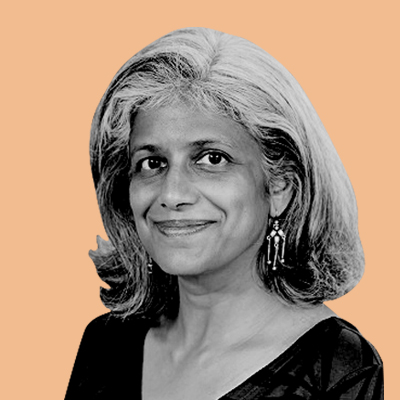
Kalyani Menon (Marketing) was awarded a SSHRC Insight Grant to determine how marketing can be used to encourage adaptive consumption – consumption that actually increases consumer wellbeing – rather than to perpetuate destructive materialism.
“While it obviously doesn’t benefit consumers to remain caught in a cycle of buying products to feel better about themselves, it also doesn’t benefit businesses,” says Menon. “The marketplace is very competitive and if companies are making promises they can’t deliver on, consumers will move onto the next brand.”
In partnership with Laurette Dubé from McGill University and Anne Wilson in Laurier’s Department of Psychology, Menon will examine which specific marketing cues trigger materialism so that both marketers and consumers can change behaviours to achieve true post-purchase satisfaction.
“I firmly believe that the only solution to climate change is decreased materialism,” says Menon. “Everything else is just a reaction to it.”
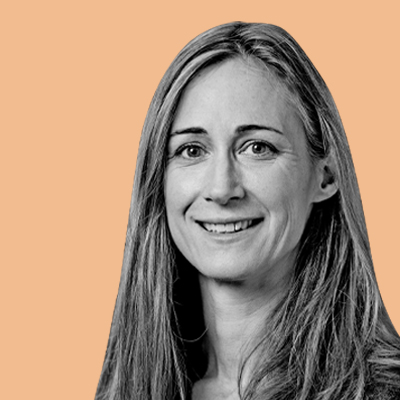
Jayne Kalmar (Kinesiology and Physical Education) was awarded an NSERC Discovery Grant to examine the coordination between the brain and spinal motor neurons. They both have the capacity to compensate for muscle failure.
“The biggest novelty for this particular grant is that I’m adding in the component of task- and sex-dependent fatigue,” says Kalmar. “The mechanisms that contribute to fatigue or that help prevent fatigue are very different between males and females, and there are far fewer studies that include either any females or enough females to do a sex-based comparison.”
Kalmar plans to use caffeine, a central nervous system stimulant, to change the excitability of neural and cortical neurons, and then correlate with changes in neuromuscular function.
“Essentially, I am asking a very basic science question: how does the nervous system adapt during fatigue?” says Kalmar. “And does it adapt differently in women? The answers will have many applications to our understanding of human movement that may extend to neurorehabilitation strategies for stroke, spinal cord injury and neurodegenerative disease.”

Using Vietnam as a case study, Brian McCaig (Economics) is analyzing how developing countries can become major players in international trade.
“Over the last 20 or 30 years, a lot of low- or middle-income countries have been trying to become more involved in global supply chains by promoting exports and inward foreign direct investment,” says McCaig. “Vietnam seems to have been tremendously successful at doing this relative to many other countries. We are interested in figuring out how.”
A key factor is Vietnam’s trade agreement with the United States, which came into effect in 2001 and led to a surge in Vietnamese exports to America. McCaig’s research will explore whether that export growth led to an increase in Vietnamese employment and, if so, how it was distributed across state-, foreign- and domestic-owned firms.
With funding from SSHRC, McCaig and his collaborators from Dartmouth College and the University of Oregon plan to extract relevant policy lessons for developing countries such as Bangladesh, Myanmar and Ethiopia, and share them broadly with international policymakers.
Since 2013, Kate Rossiter (Health Studies) has been studying the effects of institutional violence through her research on the Huronia Regional Centre in Orillia, Ont., Canada’s first and largest residential facility for people with intellectual disabilities.
“While working closely with survivors, larger structural questions came up for me about how and why institutional care so often leads to violence,” says Rossiter. “I co-wrote a book, and we developed a schema of five pre-conditions that can predict violence in these settings.”
Rossiter and her co-author, Jen Rinaldi, an associate professor at Ontario Tech University, received a SSHRC Connection Grant this year to flesh out their predictive model with the input of other Canadian scholars working with institutionalized populations.
“We are viewing institutionalization as logic rather than physical space,” Rossiter explains. “In settings like long-term care homes and homeless shelters, it has become more fragmented and insidious.”
Rossiter believes this research can help inform the society Canadians want to live in.
“It is important to make connections and build a larger case around justice and vulnerability. When we undermine the humanity of others, we also do harm to ourselves.”

In November 2018, as Ashley Lebner (Religion and Culture) was preparing to study the relationship between science and secularity in 19th century Brazil, a fire destroyed the country’s national museum. All of a sudden, her research was more relevant than ever.
“The first Royal Museum was built in 1818, but it really became a modern national museum during the reign of Brazil’s last Emperor, Pedro II, between 1831 and 1889,” says Lebner. “He was a devout Catholic, yet Pedro II was also a famous supporter of science. Now the museum needs to be rebuilt at a time when Brazil’s president is Christian, right-wing and proudly anti-science. How will his views play into efforts to rebuild?”
Lebner was awarded a SSHRC Insight Development Grant to study these two moments in the interwoven histories of science and religion in Brazil. She is analyzing documents from Brazilian archives while actively gathering digital material as the new national museum is being conceived.
“By determining how Emperor Pedro II managed the relationship between science and religion when the museum was first built, it may teach us more about secularity in the country and how it has changed,” says Lebner.

Laurier researchers are well-regarded for their innovation and ingenuity. Congratulations to the faculty and students whose work was honoured with awards this year.

Phelim Boyle (Finance), Rianne Mahon (Political Science) and Eleanor Ty (English and Film Studies) were elected as fellows of the Royal Society of Canada, the highest honour a scholar can achieve in the arts, sciences and social sciences. Fellows advise governments, non-governmental organizations and Canadians generally on matters of public interest, and mentor developing scholars. This is the first time Laurier has had three fellows elected to the Royal Society of Canada in the same year.
The prestigious Canada Research Chairs program named Homa Kheyrollah Pour (Geography and Environmental Studies) the Tier II Canada Research Chair in Remote Sensing of Environmental Change, while Andriy Shkilko (Finance) had his Tier II Canada Research Chair in Financial Markets renewed for a second term. Chairholders receive five years of federal investment in their research. Laurier hosts 10 Canada Research Chair positions.
Bree Akesson (Social Work) received an Ontario Early Research Award from the provincial government to support her research on Syrian refugee families living in Canada. The awards program gives funding to emerging researchers working at publicly funded Ontario research institutions to build a research team.
Megan Gauthier, a first-year student in Laurier’s Master of Social Work program, received a Hilary M. Weston Scholarship from the Government of Ontario for her work on the effects of psychological trauma on mental health. The scholarship is awarded to two graduate-level social work students in the area of mental health annually. Gauthier is the third Laurier recipient in as many years.
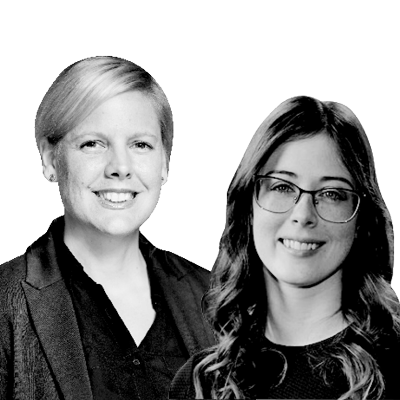

Vladimir Kitaev (Chemistry and Biochemistry) was named University Research Professor in recognition of his important contributions to materials chemistry. The award celebrates a continuous record of outstanding scholarship by a full-time Laurier faculty member and enables them to complete a major program or piece of research.

William Quinton (Geography and Environmental Studies), Anne Wilson (Psychology) and Mark Eys (Kinesiology and Physical Education, Psychology) were named the inaugural Laurier Research Chairs. The program allows faculty members to gradually return to teaching duties while continuing significant research activity after completing their Canada Research Chair terms.
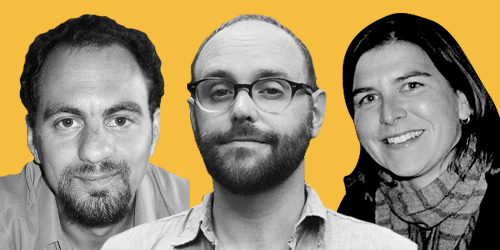
Noam Miller (Psychology, Biology), Greg Bird (Sociology) and Jenny Kerber (English and Film Studies) were honoured with Early Career Researcher Awards in recognition of their exceptional contributions to research and student training. Each received a grant to support their research program.
When I came to Laurier in 2002 to complete my bachelor of Music, I thought I wanted to be a high school teacher. I was interested in why people like music and in making music accessible for everyone, but there wasn’t really a name for that field of study back then other than music education.
In my 20s, I took some training in arts and medicine, and it made so much sense to me. Around that same time, Laurier was developing its master’s in Community Music program. Lee Willingham and Kirsten Yri told me about community music and its ties to health and wellbeing, so I applied to the program and was accepted into the inaugural class.
The Community Music program helped me learn more about qualitative research and tie my interests to something tangible and impactful. For my capstone research project, I reached out to my local hospital, Niagara Health in St. Catharines, Ont., to see if I could create a music and wellness program in their outpatient oncology department. I worked hard to develop the program from scratch and completed two studies about its impact on participants. The feedback was overwhelmingly positive. Participants said it got them out of the house, allowed them to be more social and took their minds off of their treatment. The program continued to grow, and I was eventually hired in a permanent capacity as the hospital’s Arts in Medicine Coordinator.
Lee Willingham and I are currently collaborating with the Multiple Sclerosis (MS) Society of Canada’s Niagara Peninsula chapter to develop an arts-based engagement strategy for people living with MS. With funding from SSHRC, we piloted a song-writing course using a musical assistive device which works really well for people affected by MS. The participants had an amazing time working with a professional songwriter and got to put on a live concert at a local café.
I love qualitative research. It is really gratifying to discover what people find valuable and put that down on paper. My professors at Laurier helped guide my way and made me feel like I had potential. That was really important for me as a student and someone who was uncertain in a new field, and I don’t know if I would’ve found that support at any other school.
Laurie Sadowski holds an MA (‘16) in Community Music and a BMus (‘06) from Laurier, as well as an MA in Musicology from York University. She is an adjunct faculty member in Laurier’s Faculty of Music.


As a political science professor and Laurier’s go-to expert on Canadian and U.S. politics, Barry Kay (Political Science) absorbed as much news as he could, as often as he could.
“He never stopped reading and listening,” says Kay’s wife, Betty Leventhal. “During elections, the radio stations would start calling at 7 a.m. to see if they could book him. Sometimes he’d do interviews in bed. He didn’t have to prepare anything – he just knew it.”
Kay passed away on Dec. 13, 2019 soon after doctors discovered he was battling cancer. He was 73.
After learning he was gravely ill, Kay maintained his sense of humour, asking doctors to keep him alive long enough to learn the result of U.S. President Donald Trump's impeachment trial. He kept going as a professor, too, delivering his end-of-term lecture to a second-year political science class not long before his death. In the hospital, Kay continued marking papers, ignoring the intravenous lines attached to his arms.
Kay joined Laurier in 1978 after holding teaching positions at the University of Saskatchewan and the University of Windsor. During his more than 40 years at Laurier, he developed a reputation as a passionate political scientist who delivered captivating, anecdote-filled lectures. He was also well known on campus for his leather jackets, love of trivia and ever-growing collection of bobblehead dolls in the likeness of U.S. presidents.
Over the years, Kay wrote hundreds of editorials for news media including the Waterloo Region Record, Global News and the Ottawa Citizen. He was widely recognized as being knowledgeable and authoritative, but also concise and down to earth. That combination made him popular as a source for journalists at media outlets including the Toronto Star, Ottawa Citizen, New York Times, Global, CBC and CTV.
“Barry understood it was about the presentation as well as the information,” says Scott Thompson, host of the CHML 900 radio program The Scott Thompson Show, which regularly featured Kay discussing Canadian and U.S. politics. “He was very good at translating knowledge for the average listener.”
Kay was a particularly valuable source for journalists leading up to federal and provincial elections. During the late 2000s, he developed a unique way of projecting the number of seats each political party would win. Kay did this by collecting data from public opinion polls and examining the differences in seat counts between current and prior elections. His seat projections were published by the Laurier Institute for the Study of Public Opinion and Policy, which Kay founded with Steven Brown, professor emeritus in the Department of Political Science.
Kay was also a regular on Global TV during election time, providing live on-air analysis and commentary for 12 federal, provincial and municipal elections since 2004. He brought students to the studio with him each time to collect and analyze results as they came in.
Darrell Bricker, a former student and current CEO of IPSOS public affairs, told Global News that Kay “taught many of us at IPSOS, including me, the skills we use every day.”
“His influence on political research in Canada is undeniable.”